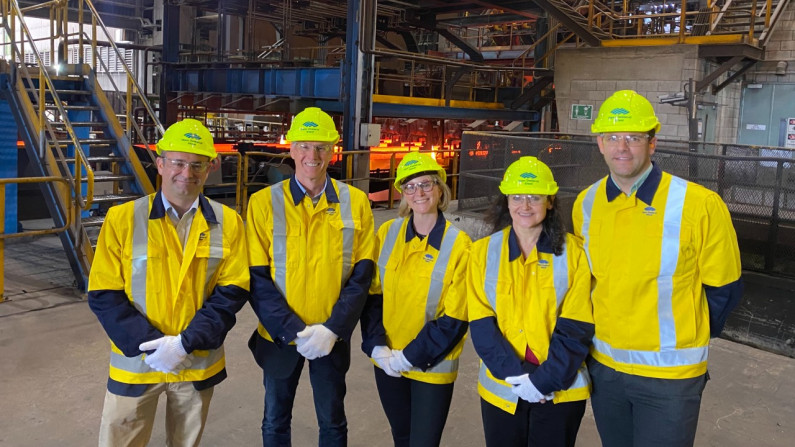The planned partnership with NZ Steel will save hundreds of thousands of tonnes of carbon emissions each year – equivalent to keeping 300,000 cars off the road every year.
Installation of an electric arc furnace will enable NZ Steel to produce lower-carbon steel by melting scrap steel using electricity instead of coal – substantially reducing the emissions intensity of existing processes.
After the electric arc furnace becomes fully operational in 2027, it is expected to result in emissions reductions equal to 800,000 tonnes per annum. This will contribute 5.3 percent of the emissions reductions needed under New Zealand’s second emissions budget (2026-2030), and 3.4 percent within the third emissions budget (2031-2035).
The conditional agreement will be co-funded by up to $140 million from the Government’s Investment in Decarbonising Industry (GIDI) fund, with the rest funded directly by NZ Steel. Government investment accelerates decarbonisation at the steel-making site at Glenbrook, Waiuku.
The project is forecast to have an abatement cost – the cost to reduce pollution - of $16.20 per tonne, which is significantly lower compared to the cost of carbon per tonne in New Zealand, which is currently around $52 per tonne.
The Government has signalled a strong preference to reduce emissions domestically to meet New Zealand’s target of net zero carbon emissions by 2050. This partnership agreement, supported by officials from the Ministry for the Environment, the Energy Efficiency & Conservation Authority, and the Ministry of Business, Innovation and Employment, is the first in several bespoke opportunities the Government is exploring, to target New Zealand’s largest emitters through the GIDI fund.
A feasibility study will be completed over the coming months to ensure the proposal can be given the full green light and turn the agreement unconditional.
The project is an example of Government support that enables both decarbonisation and continuation of industry in Aotearoa New Zealand, retaining local jobs and other economic benefits.
